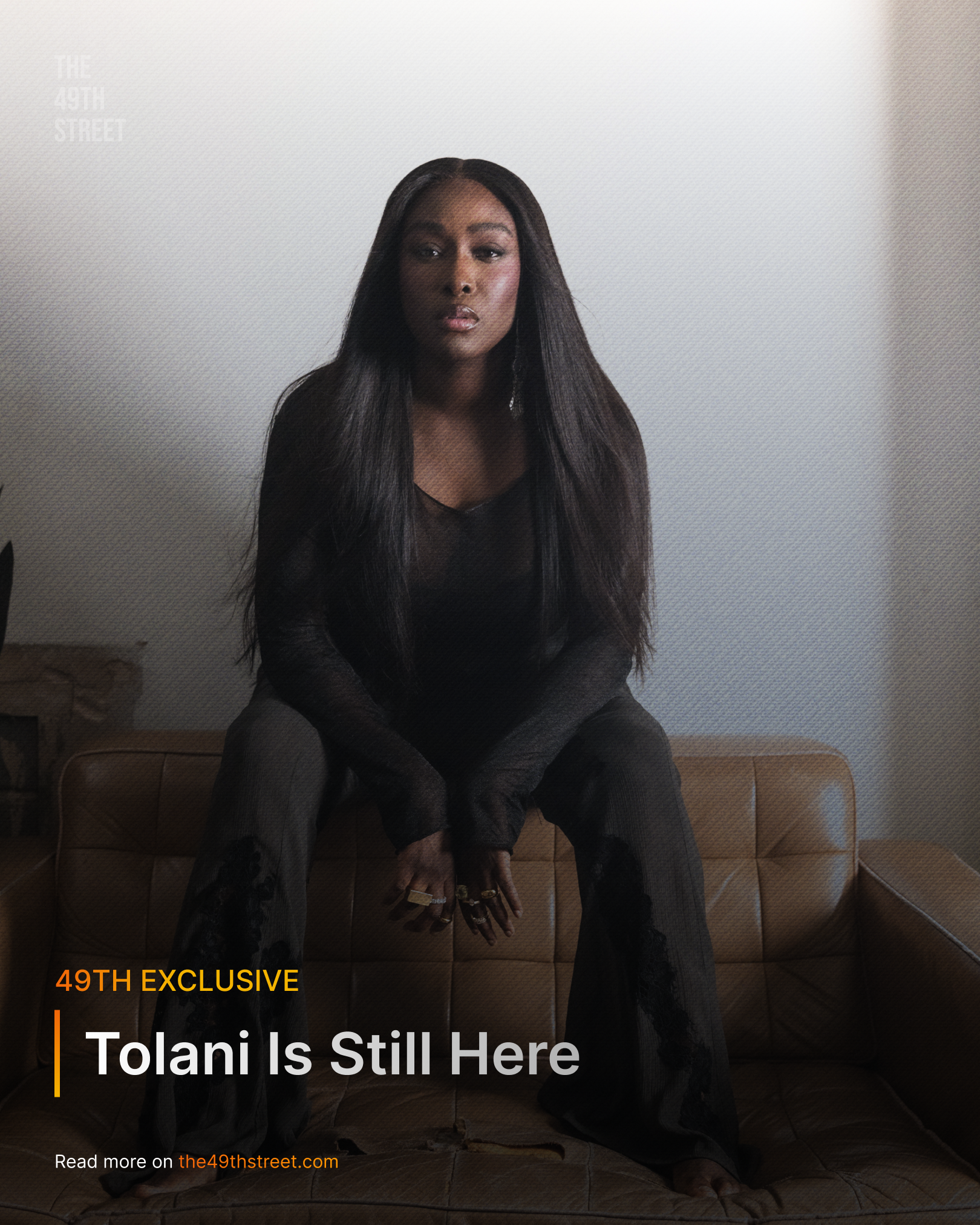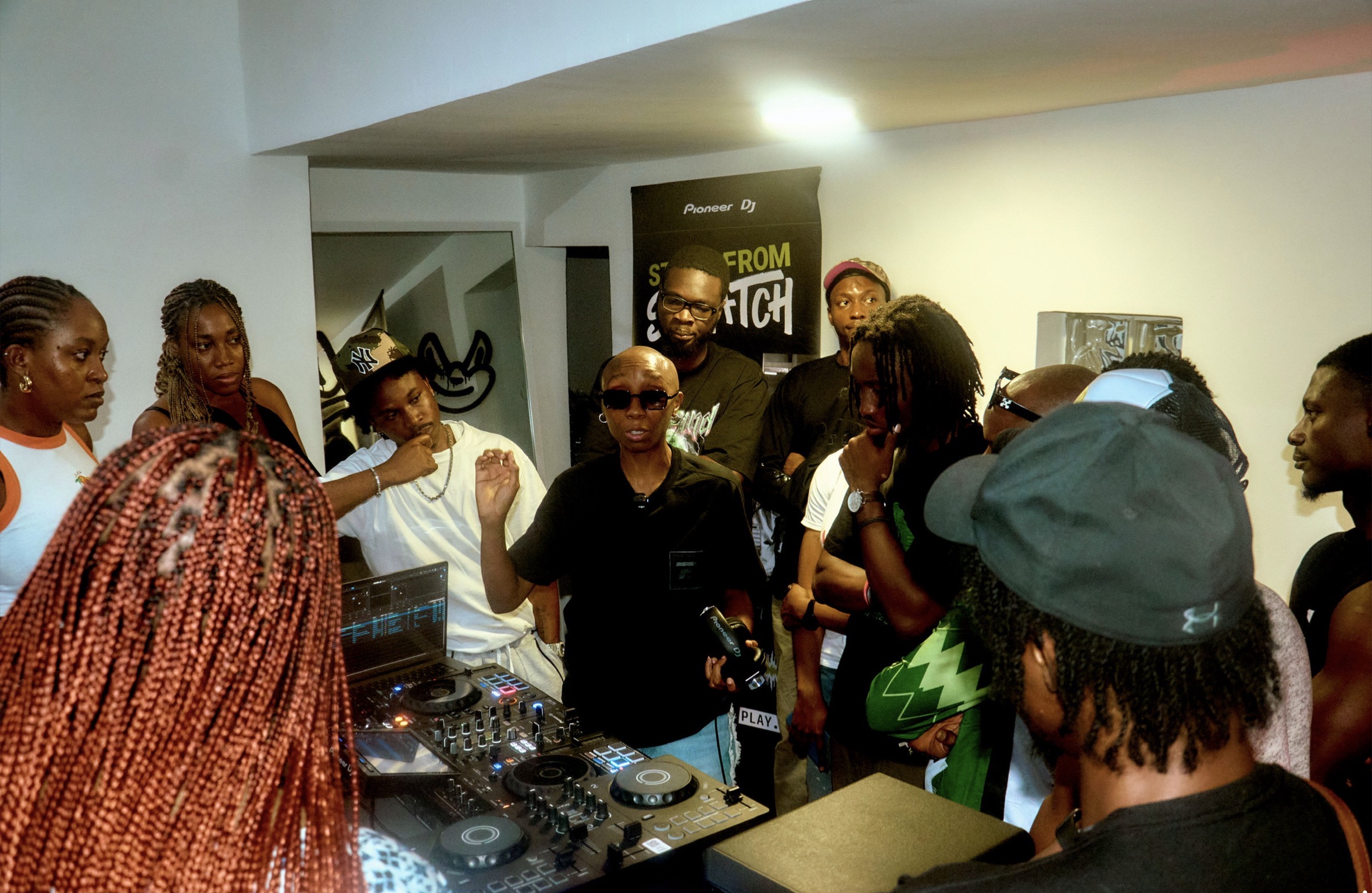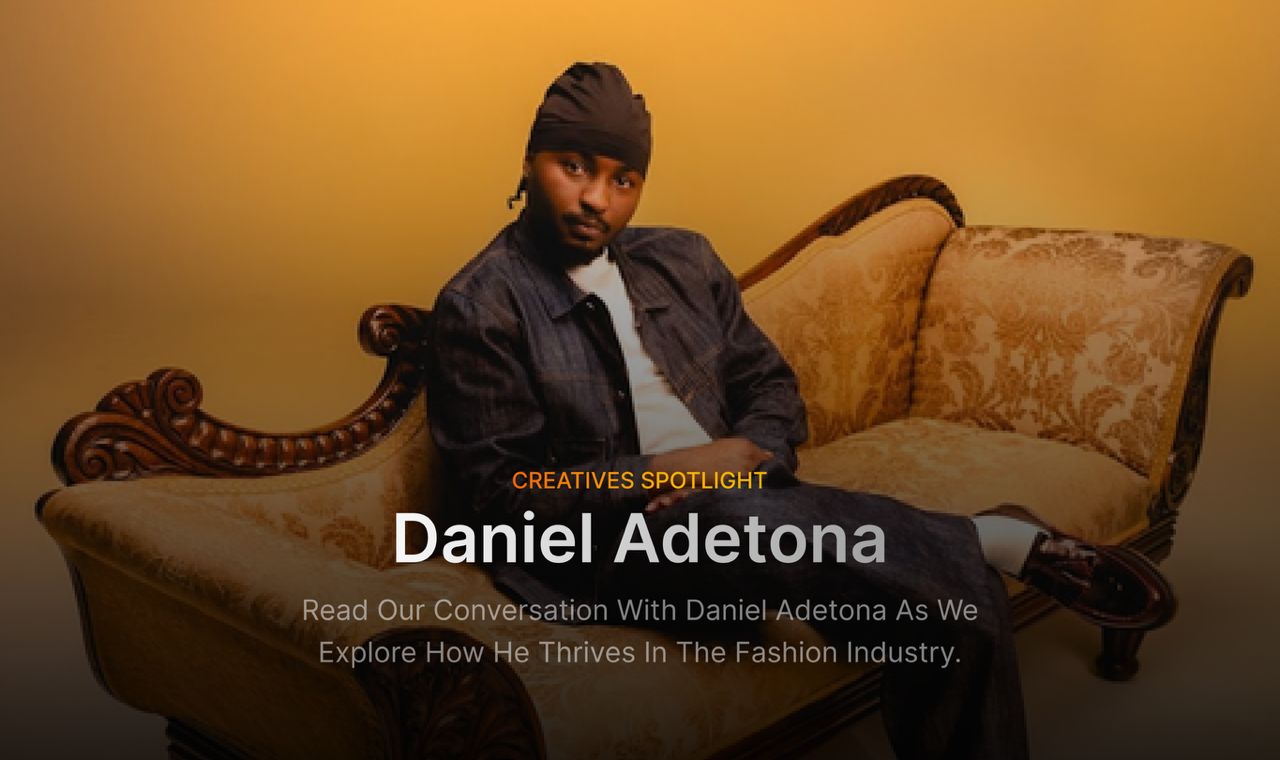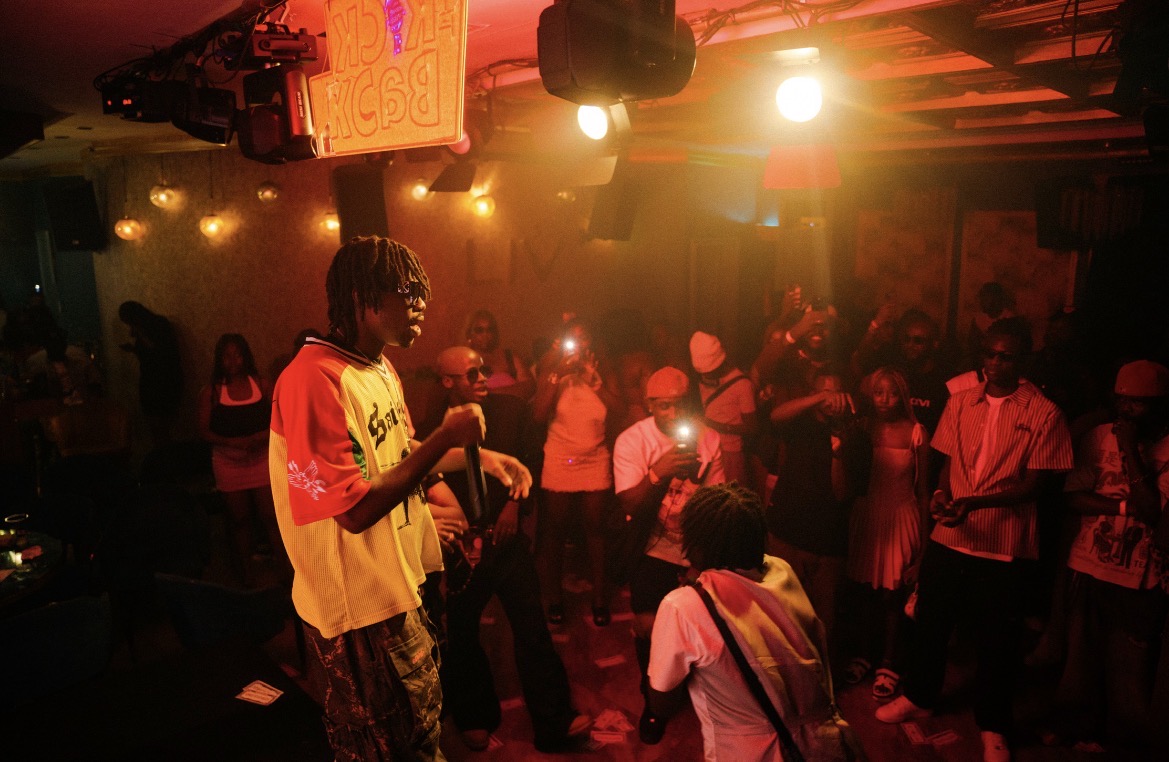After a quiet re-emergence and a streak of vulnerable releases, the Nigerian-British artist opens up about genre defiance, ADHD, and the beauty of unfinished things.
In Afropop’s high-octane landscape, where tempo is king and glitz is currency, Tolani Otedola moves differently. She’s unboxable: a songwriter who melts soul into Afrobeats, a storyteller who whispers where others shout. When asked to define her sound, she laughs. “If you think my music is genre-bending and confused, that’s because I am,” she says. “There’s Afropop in there, R&B, soul… but really, it’s just me.”
Over Zoom, the artist reflects on her winding path since her 2019 breakout Ba Mi Lo. The track was a revelation—smooth, sultry, and steeped in lyrical intention—but her momentum stalled when life intervened. In 2020, a PTSD diagnosis forced a pause. “I stopped making music completely,” she admits. “I wasn’t sure I’d ever return.”
But Tolani never truly left. She was healing, recalibrating, and quietly compiling Sh*t I Nvr Finished, a project born from abandoned demos and nearly lost verses. “I had songs I’d played for friends, played in studios… then left to die on a hard drive.” The title, cheeky and self-aware, became a mantra: Release the imperfect thing.
For Tolani, perfectionism was a creative chokehold. “I went to music school, which, knowing what I know now, I don’t think was for the best. I always say to people that if someone were to ask me now if they should go to art school, I would usually say no. Because you go to music school, and each of your teachers has their own definition of what makes a good sound.”
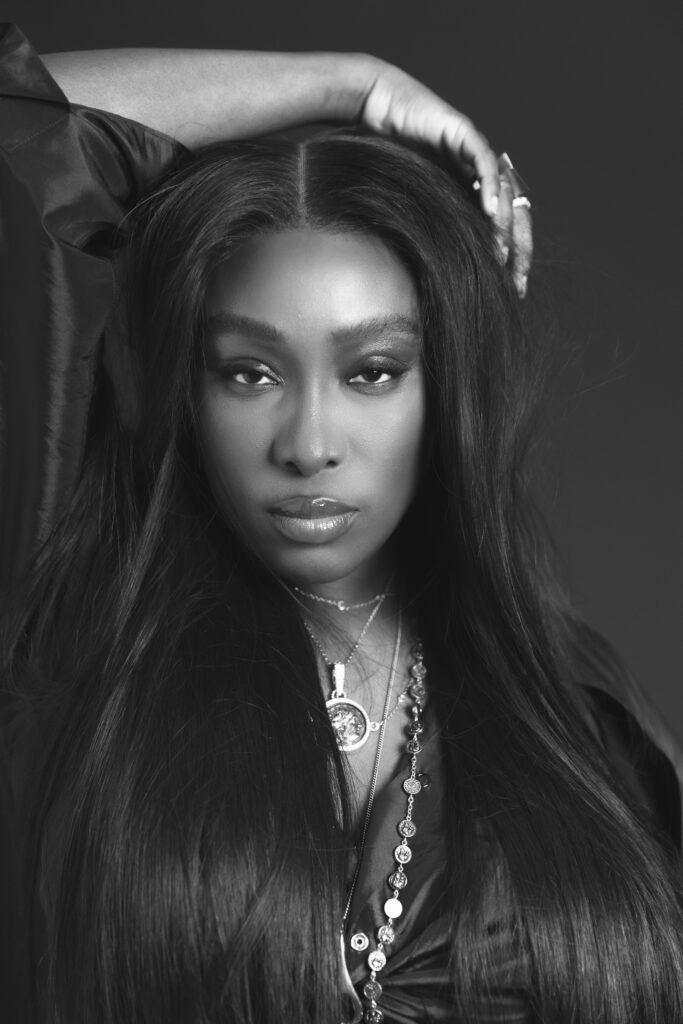
Music school taught her to mimic Aretha Franklin, not her own instincts; early managers pushed her into boxes that didn’t fit. “I left confused about what kind of artist I wanted to be,” she says. ADHD—diagnosed later—intensified the struggle. “Hyperfocus exhausts you. I’d think, ‘Why am I so tired?’ Until I learned: my brain just works differently.”
Therapy and medication helped. So did a friend’s blunt advice: Your job isn’t to make music—it’s to release it. “That shifted everything,” she says. Sh*t I Nvr Finished became her rebellion against overthinking. Some tracks were revamped; others were dropped raw. “I asked myself, What’s the worst that could happen?”
Tolani’s writing thrives in solitude. “ADHD means I mask around people,” she explains. “In the studio, I need space to be emotional, to try things.” Yet collaboration has surprised her. A writing camp with Spotify pushed her to vocalize heartbreak in front of strangers. “I had to say, “Can we please ask a few people to leave the room?” But then sometimes, not being alone in a room helps, because it brings multiple minds and multiple ideas to the front.”
Her creative compass? Emotion. She cites Kehlani’s Nights Like This and Aqyila’s Bloom as aspirational blueprints. “Those songs gut me. When someone told me Bloom sounded like my work? Best compliment.”
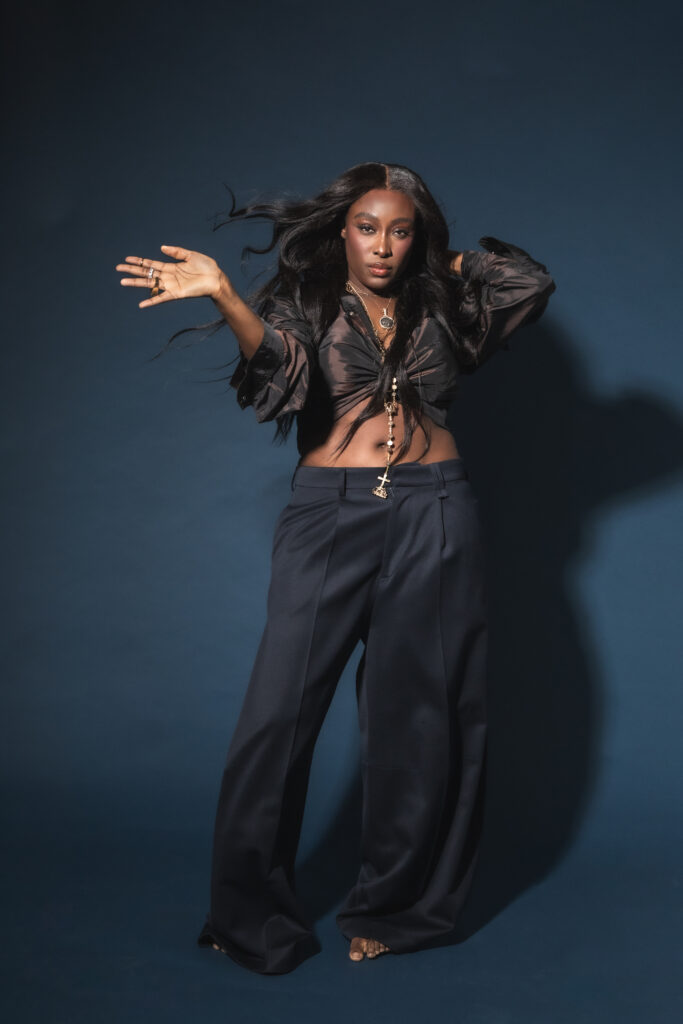
When the conversation pivots to industry gaps, Tolani doesn’t hesitate. “Our live scene needs work.” Nigerian concerts, she argues, prioritize spectacle over sound. “Why not smaller venues with better acoustics? I don’t want to watch 15 openers before the act I paid for.” She dreams of intimate gigs where artistry, not Instagram moments, takes center stage.
Tolani’s comeback isn’t about reinvention—it’s about return. To joy. To curiosity. To the thrill of a half-finished idea worth salvaging. “I used to regret risks I didn’t take. Now? I’d rather fall flat than not do something and always wonder.”
Sh*t I Nvr Finished is something new and old at the same time, Tolani’s way of connecting with her audience while still releasing the music that is close to her heart.

